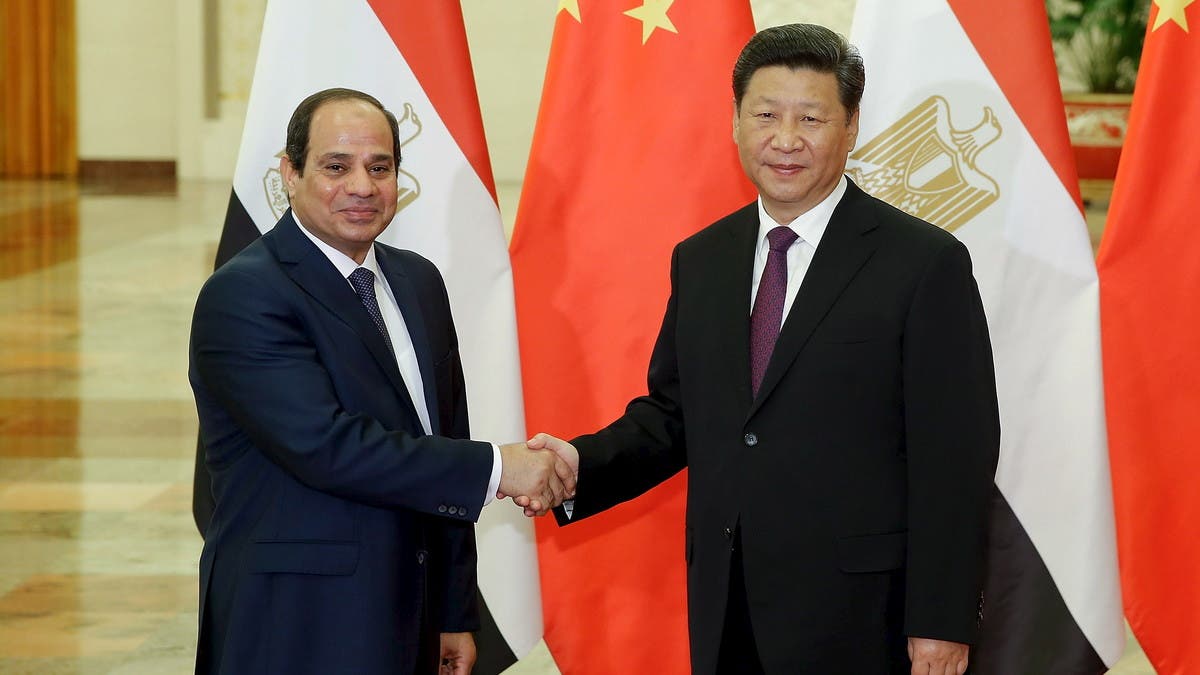China and Egypt “share similar visions and strategies in defending their own interests,” Chinese leader Xi Jinping said Saturday in a meeting with Egypt's President Abdel Fattah al-Sisi.
Xi “hailed enhanced political trust” between the countries, citing cooperation in fighting the pandemic. Their comprehensive strategic partnership is a model of “China-Arab, China-Africa and China-developing world solidarity,” Xi said, according to CGTN, the international arm of state broadcaster CCTV.
For all the latest headlines follow our Google News channel online or via the app.
The Beijing meeting comes as al-Sisi's government is seeking closer ties with China while it distances itself from the US and other Western states critical of its human rights record.
“China and Egypt share similar visions and strategies in defending their own interests, pursuing common development, enhancing their people’s well-being and promoting fairness and justice in the world, as the world is undergoing changes unseen in a century,” Xi said.
The sides will “continue to support each other on issues related to core interests and major concerns,” he said.
Since taking power, al-Sisi has overseen a widespread crackdown on dissent and opposition, jailing tens of thousands and drawing international criticism.
In 2017, the government arrested dozens of Uyghur students studying at Cairo’s al-Azhar University and deported them to China amid Beijing's ruthless crackdown on Muslim minorities.
Egypt was the recipient of several free shipments of Chinese-made Sinopharm coronavirus vaccines and China says it helped set up Africa’s first vaccine production in the country.
Al-Sisi is one of more than 30 world leaders and heads of major international organizations who flew to Beijing for Friday's opening of the Winter Olympic Games.
Not having left China since 2019 amid the pandemic, Xi is holding a series meetings on the sidelines of the Games with leaders whose countries are anxious to strengthen relations with the rising superpower.
By around midday Saturday, Xi had also met with heads of Kazakhstan, Turkmenistan and Serbia. The leaders of Argentina, Ecuador, Qatar, Poland and are also among those in town.
The meetings follow a mini-summit between Xi and Russian President Vladimir Putin on Friday that underscored the growing alignment of their authoritarian countries’ positions as they push back against the liberal world order dominated by the US.
The two leaders oversaw the signing of more than 20 agreements covering trade, energy and other fields and issued a joint statement in which China backed Russia in opposing
NATO’s expansion, a move seen as signifying Xi’s growing perception of himself as a global leader.
“President Putin emphasized that the strategic significance of Russia-China relations is unprecedented,” Chinese Vice Foreign Minister Le Yucheng said in a commentary on the meeting posted to the ministry’s website.
“Russia firmly supports China’s legitimate position of safeguarding its core interests,” Le said. “During the talks, the two heads of state reiterated that any attempt to harm the interests of China and Russia and divide China-Russia relations is doomed to failure.”
While China formally eschews all military alliances, the sides have held a series of joint war games, including naval drills and patrols by long-range bombers over the Sea of Japan and the East China Sea. In August, Russian troops for the first time deployed to Chinese territory for joint maneuvers.
Putin has also noted that Russia has been sharing highly sensitive military technologies with China that helped significantly bolster its defense capability.
In his meeting Saturday with Kazakh President Kassym-Jomart Tokayev, Xi said China is “unswerving in its support for Kazakhstan’s safeguarding of its own independence, sovereignty and territorial integrity.”
China issued strong support for Tokayev's government during deadly street protests last month, though unlike Russia, it did not send troops to help restore order.
“China is ready to deepen security cooperation with Kazakhstan,” Xi said, according to CGTN.
Tokayev “thanked China for supporting Kazakhstan’s efforts to reject external interference and maintain its own security and stability,” CGTN said.
Xi's meetings with Turkmen President Gurbanguly Berdymukhamedov and Serbian President Aleksandar Vucic were equally upbeat, according to the official Xinhua News Agency.
Xi hailed the “ironclad friendship” between China and Serbia, saying the two countries enjoy “high-level political mutual trust.”
Read more:
Kremlin says US cannot be trusted on Ukraine accusations
China suspected in News Corp hack, journalists’ data compromised
Russia’s Putin tells Xi Jinping of new deal that could sell more gas to China

 World3 years ago
World3 years ago
 World3 years ago
World3 years ago
 Business11 months ago
Business11 months ago
 Entertainment7 years ago
Entertainment7 years ago
 World7 years ago
World7 years ago
 Entertainment7 years ago
Entertainment7 years ago






